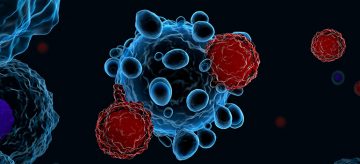By Reyhana Heatherington | January 23, 2019
Scientists at UBC and BC Children’s Hospital are the first in Canada to use a new test for pediatric tumour analysis.
By Reyhana Heatherington | January 16, 2019
Breakthrough technology advances research of vascular diseases like diabetes.
By Laura Abbott | November 26, 2018
Two decades ago, Poul Sorensen made a discovery that would lead to the development of a cancer drug that shrinks many different kinds of tumours.
By Laura Abbott | November 26, 2018
Matt Wagstaff is helping B.C. communities get the information they need to improve air quality.
By Reyhana Heatherington | November 20, 2018
An estimated 731,000 Canadians have to borrow money in order to pay for drugs prescribed by their physician.
By Reyhana Heatherington | November 15, 2018
UBC researchers involved in groundbreaking pan-Canadian research program.
By sarah stenabaugh | November 7, 2018
International research project co-led by UBC Canada 150 Research Chair.
By sarah stenabaugh | October 29, 2018
Researchers found that getting pregnant less than a year after delivery is associated with risks for women of all ages.
By Camilo Trujillo Sanchez | October 15, 2018
Researchers find that teen girls did not engage in riskier sexual activity after HPV vaccine introduced in schools.
By bkladko | October 5, 2018
The authors, including MD/PhD students, integrated data from decades of small-scale studies using a systems biology approach.









